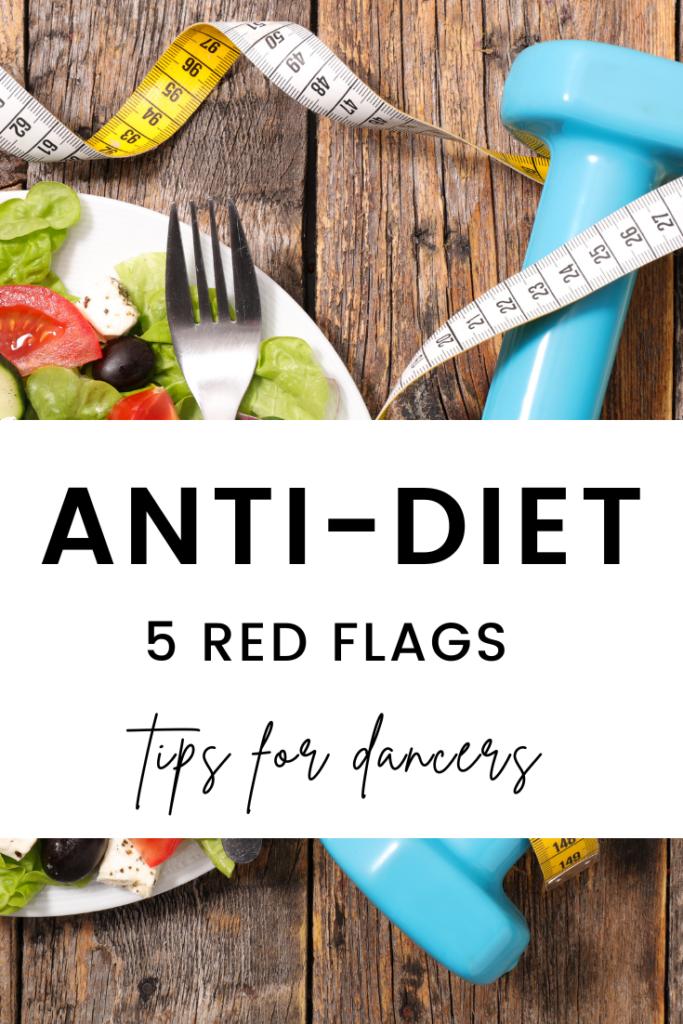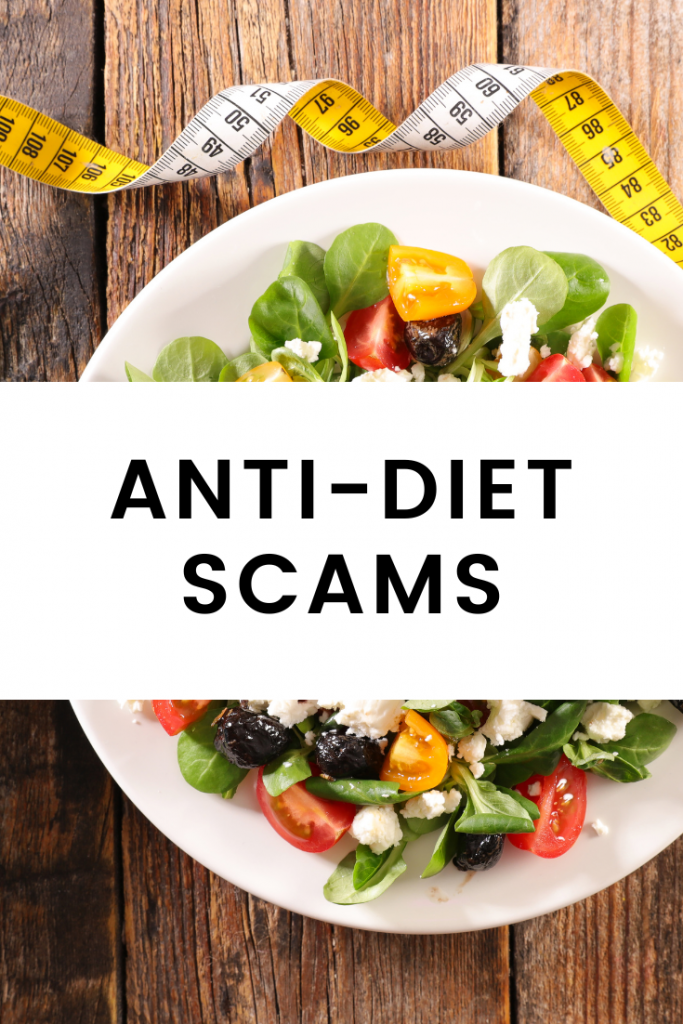When “anti-diet” isn’t actually anti-diet
It’s an obvious fact that diet culture, and the diets, supplements, and “lifestyles” it puts forth, sell. Large corporations like Noom and WW (formerly Weight Watchers) thrive on major earnings, and the fleeting results of weight loss dieting are a proven source of that. But an interesting shift is changing the dieting industry. Growing consumer demand to swap dieting with more wholesome approaches means that companies are coercing terms like “anti-diet,” “food freedom,” “holistic nutrition,” and “wellness” to guise restrictive plans. The bottom line: more than ever, “anti”-diet culture is selling, too.
Consumers are struggling to identify advice that is dismantling, and not promoting, a culture that oppresses so many. I’ve previously discussed three specific examples of companies— Noom, WW, and MyFitness Pal— that are using the anti-diet rhetoric and coercing approaches like intuitive eating to guise a restrictive agenda. This article will offer 5 red flags for you to consider when scrolling through the not-so-“anti”-diet, diet advice flooding your social feeds.
Red Flag #1: Food avoidance is a priority
Similar to how “clean” eating villainizes processed foods, specific behaviors exemplify red flags of diet culture. Brush up on your knowledge about the dieting mentality and refer to the following list of examples:
- Suggestions to “avoid” or “limit” any food or food group (common examples are “processed foods,” “refined grains,” “dairy,” and “refined sugar.”
- “It’s not a diet, it’s a lifestyle change.”
- “Cleanse your fridge.”
- “Crowd-out sweets by eating only whole and minimally processed foods.”
- “Detox from your weekend.”
- “Stick to whole foods, mostly plants.”
- “X foods are bad and Y foods are good.”
- “Limit X to a specific serving size or amount per day (or week)”
- “Limit the number of grams of carbs/protein/fat you’re eating in a day.
- “You can only eat at certain times of the day” or “stop eating at a specific time each day.”
Red Flag #2: Weight loss is promised and thinness is the goal
A tell-tale sign that an “anti”-diet approach is just diet culture in disguise is when the goal is to ultimately lose weight. This might be depicted with before-and-after photos. The same goes for body composition changes like increased muscularity and decreased fat mass— both of which are emphasized in the dance world.
But the inability to maintain any specific weight or body goal, which is the reality for anyone who embarks on restrictive dieting, imposes feelings of self-doubt and self-ridicule. So, you might be thinking one of two things: first is the assumption that higher weights are associated with some illnesses (ie. heart disease and diabetes). And second is the mere (and unfortunate) belief that an “ideal dancer’s body” is a ticket to career success. But let’s fact-check:
- Weight cycling (as defined by repeatedly losing and gaining weight) is associated with long-term weight gain.
- Weight cycling is also an independent risk factor for heart disease.
- Weight stigma (such as the discrimination a dancer might experience at auditions) is associated with negative health outcomes.
- Behaviors that support long-term (AKA “successful”) weight loss most parallel behaviors seen in anorexia nervosa.
- Dancers have a three times higher risk of suffering from eating disorders than the general population.
- Eating disorders have the second highest mortality rate of any mental health disorders.
For dancers, even if weight loss is suggested by those “higher up,” it’s important to consider the sacrifices (physical, mental, and emotional health) when pursuing the path of dieting (or for the sake of this article, “wellness” and “lifestyle changes—code: dieting).
Red Flag #3: The source isn’t qualified
Though I am pro-dietitian when it comes to nutrition support, it’s important to know that not all practitioners (even dietitians) are truly “anti”-diet and if this is the path you’re looking to take, then you need to know the differences. First, there’s a major difference between small, independent practitioners (like private practice dietitians) and major corporations like Noom and WW. Even if the latter is offering nutrition coaching services, realize that the ultimate goal will be to use food as a divisive tool, not a supportive one. Second, it’s important to consider whether your dietitian holds advanced certifications and is well-versed in helping those heal from disordered eating and/or eating disorders.
The same holds true for non-dietitian nutrition certification programs. An example is Precision Nutrition, which is largely rooted in “clean” eating and ultimately, pushing an agenda that isn’t just ineffective, but also harmful. After reviewing their standards for certification, it’s my opinion that the philosophy and mission behind Precision Nutrition can easily exacerbate disordered eating. These certification programs are notorious for demonizing processed foods and building nutrition recommendations largely based on anecdotal experience— not science. Of course, this might not apply to all who utilize Precision— so you’ll need to really vet the information set forth.
As a dietitian with advanced qualifications, I am trained to sift through evidential data to help dancers heal from these harmful messages that exacerbate an all-or-nothing mindset around food. Not only do I utilize my personal experience as a dancer, but also, over a decade of ongoing accredited training to both practice and teach a unique framework designed for The Healthy Dancer®.
Red Flag #4: “Clean” foods are rewarded
“Clean” eating is the subtler way that diet culture shows up these days. But its undertones remain restrictive around large groups of foods (like processed foods) and food groups (like wheat, sugar, dairy, and soy). Even suggestions to “eat real, whole foods” (ie. Michael Pollin’s “Eat food. Not too much. Mostly plants.” arguably assumes that other foods are “pseudo” or “fake” and therefore “bad.”
Of course, some may need to truly avoid foods for reasons like allergies. But labels like “clean” and “pure” moralize our food choices, glorifying some while vilifying others and ultimately, driving food guilt when the presumed “right” food is not chosen. The same holds true for descriptions like “healthy” and “unhealthy,” which is incredibly confusing as we attempt to sift through the countless opinions (most of which are conflicting) surrounding what foods are “right” and “wrong.”
The bottom line: Mealtime decisions become increasingly overwhelming and these words imply judgment around our food choices. The goal of a true anti-diet approach is to be NON-judgemental.
Red Flag #5: Portion control is a tool
Whether it’s counting calories, measuring servings, counting points, or counting macros, dictating how much to eat drives you further from your ability to identify and honor fullness cues. If you’re feeling shameful for eating “too much” or experiencing immense fear over exceeding a specific calorie allotment, then ask yourself what is really causing this fear. Most likely, it’s fear of weight gain or the fear of failed weight loss— both of which are red flags that the plan is actually a diet.
How can dancers decipher diet from “anti-diet”- key questions to ask
If you’re unsure whether nutrition advice is truly anti-diet, then ask yourself these questions:
- Are there outright promises of success when you achieve a specific body goal, particularly weight loss? Unfortunately, we cannot deny that in some (if not many) dance environments, weight loss is not only celebrated but also, rewarded. Remember that the weight loss, when using restrictive eating behaviors, is temporary and when severe, increases your risk of injury and burnout—a recipe for shortened careers.
- Are you feeling stressed, shameful, or guilty about the types or amounts of food you’re eating?
- Are you focusing more on abiding by certain food rules and less on your dancing?




